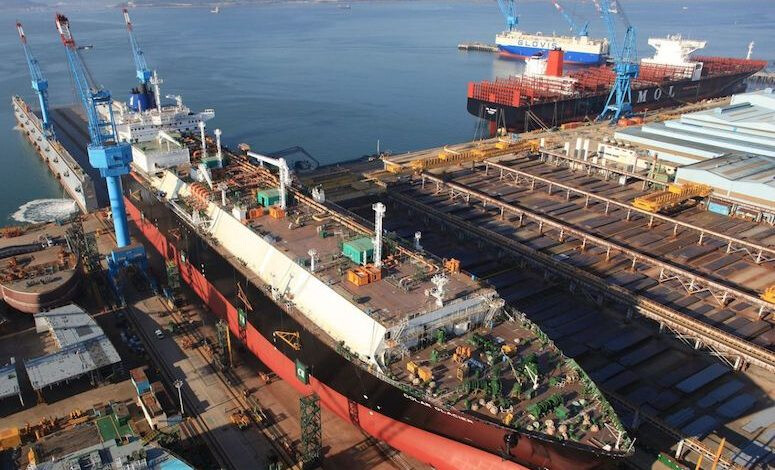
Ulsan, South Korea – In a bid to address the severe labor shortages plaguing its burgeoning shipbuilding industry, South Korea is venturing further afield, recruiting approximately 280 workers from landlocked Uzbekistan. These workers are slated to commence employment this summer in various shipyards surrounding the industrial hub of Ulsan.
The influx of Uzbek workers comes as South Korea grapples with a critical manpower deficit, exacerbated by a surge in shipbuilding orders. The workers will be compensated at South Korea's minimum wage of 10,030 won ($7.60) per hour.
This initiative marks a significant departure from previous recruitment practices, as it represents the first time a local government, in this case, the city of Ulsan, has directly engaged in the overseas recruitment process. To facilitate the smooth integration and skill development of the Uzbek workers, Ulsan is establishing dedicated shipbuilding training facilities in Uzbekistan.
"This is a crucial step in ensuring the continued growth and competitiveness of our shipbuilding sector," stated a representative from the Ulsan city government. "By directly supporting the recruitment and training of foreign workers, we are addressing the immediate labor shortage while also fostering long-term partnerships."
The pilot program, a collaborative effort between the Ministry of Employment and Labor and the Ulsan city government, will be closely monitored and evaluated before any potential expansion.
South Korea's shipbuilding industry, a cornerstone of its economy, has been grappling with a persistent labor shortage in recent years. Factors contributing to this shortage include an aging domestic workforce, a decline in interest among young Koreans in manual labor jobs, and a sharp increase in demand due to a global surge in ship orders.
In response, the national government has implemented several measures to alleviate the labor crunch. These include increasing the annual quota for skilled worker visas (E-7 visas), streamlining the visa process, and forging training and recruitment agreements with various Asian nations.
The search for labor has extended beyond traditional sources, with South Korea turning to landlocked Nepal a few years ago, seeking up to 3,000 Nepali workers. Additionally, significant numbers of workers are being recruited from Southeast Asian countries such as the Philippines, Indonesia, and Thailand.
"The government recognizes the urgency of addressing the labor shortage in the shipbuilding industry," said a spokesperson from the Ministry of Employment and Labor. "We are committed to exploring all avenues to ensure that our shipyards have the necessary workforce to meet the growing demand."
The recruitment of Uzbek workers underscores South Korea's proactive approach to tackling its labor challenges and its willingness to expand its search for skilled workers to new and diverse regions. The success of this pilot program could pave the way for further collaboration with Uzbekistan and other nations, ensuring the continued vitality of South Korea's shipbuilding industry.
[Copyright (c) Global Economic Times. All Rights Reserved.]





























